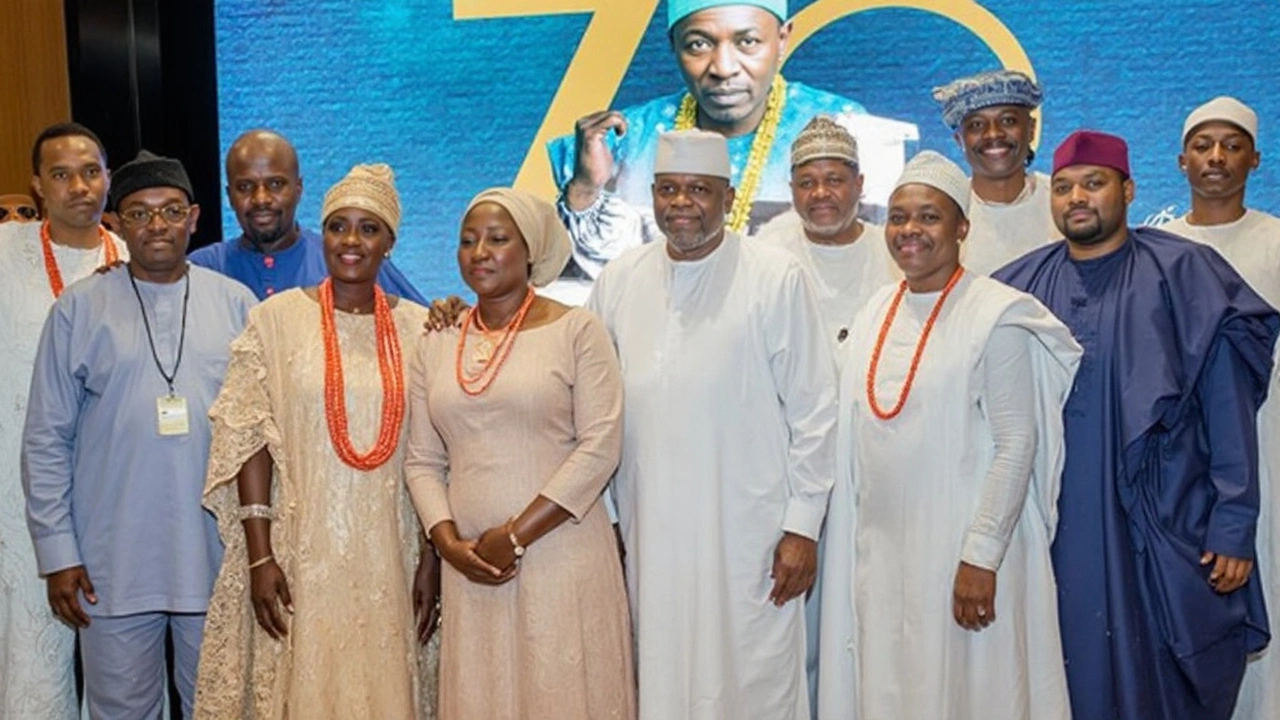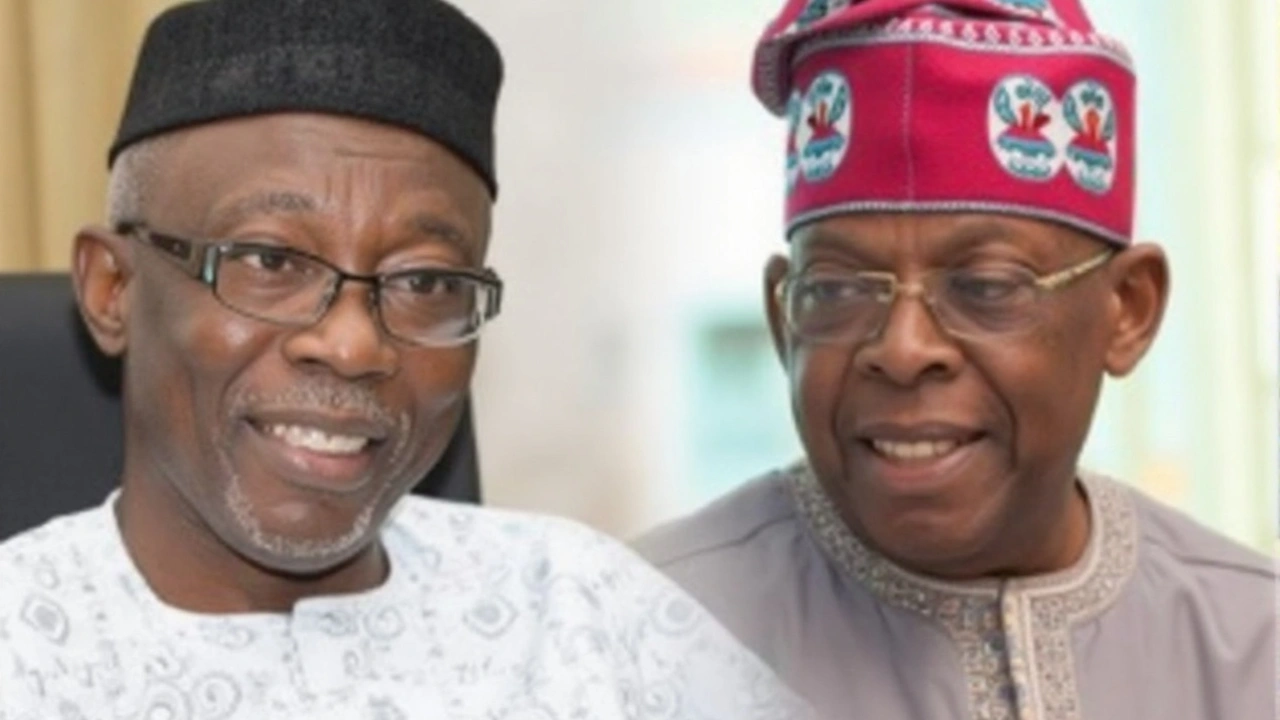Tunde Bakare's Stand: A Pastor Turns Political Maverick
When Pastor Tunde Bakare declared he will never call Bola Tinubu 'my president,' it rang out as far more than an offhand remark. As head of The Citadel Global Community Church and a former presidential aspirant, Bakare is not just any pastor or political commentator—he's a figure who has weathered the storms of Nigeria's turbulent democracy for years. So, when someone of his credibility outright rejects identifying President Tinubu with a sense of personal loyalty, it instantly shakes up conversations across the country.
These comments didn't just pop out of nowhere. Bakare participated in the All Progressives Congress (APC) primary in June 2022, competing for the party’s presidential ticket. Despite spending a whopping N100 million on nomination forms, he walked away with zero votes. But instead of feeling humiliated, Bakare wore this loss like a medal, calling it a 'badge of honour.' For him, it wasn’t really defeat—he saw it as a statement about how the current system works, and a reflection of the integrity he claims to uphold. That’s a rare perspective in a political culture where personal gain and winning at all costs are often the goals.
What really stands out in Bakare’s words is his frustration with how the 2023 electoral process played out. He’s particularly irked at what he sees as the lack of openness and humility in those now holding power—especially Tinubu. Bakare is not just nitpicking from the sidelines; he helped build the APC and has always argued for leadership rooted in responsibility to the people, not just winning votes.

Accountability, Not Just Criticism: What Bakare Demands
Bakare’s critique of Tinubu's government isn't limited to policy tweaks. He wants more openness, more accountability—things Nigeria's political elite often promise but rarely deliver. In his recent address, Bakare made it clear he thinks the country is drifting away from its democratic ideals. He’s worried about more than just the usual political missteps; he believes Nigeria is at risk of real democratic erosion, with consequences he says could haunt future generations.
He also put an end to any speculation that he's angling for a top government job. Bakare says he would only consider a ministerial post if it was on his own terms—and even then, he stressed that he’s not desperate for public office. It feels like he's drawing a line in the sand: if leadership isn't about genuine service and fixing real problems, he'd rather stay out.
This isn’t the first time Bakare has challenged the status quo. He's known for speaking blunt truths, often at the cost of upsetting allies. This time, his focus is the urgent need for practical, trustworthy leadership to tackle Nigeria’s long list of crises—from biting inflation to insecurity and a disenchanted youth. He believes leaders like Tinubu have to do better, not just for the party, but for everyone struggling with daily realities.
At its core, Bakare's refusal to use the phrase 'my president' sums up a broader struggle in Nigerian politics. For many, it’s a signal that political loyalty shouldn’t be blind or automatic. It’s a call to demand more from those in charge, and to expect leaders who aren’t afraid to own up to their shortcomings. In a country where talking back to power can be risky, Bakare’s stand has left plenty of people talking—and wondering what real political accountability might look like in Nigeria’s future.

6 Responses
Bakare’s refusal feels like a reminder that political affection should be earned, not handed out like a badge. It pushes us to ask whether loyalty to a leader can ever be unconditional without eroding democratic accountability. In many societies, the phrase “my president” carries an implicit contract of trust that leaders must honor. When a public figure deliberately breaks that contract, it opens a space for citizens to renegotiate the terms of that relationship. Perhaps this is the kind of philosophical provocation needed to keep power in check.
It is noteworthy, from a standpoint of civic decorum, that such an explicit disavowal serves as a form of constructive dissent. The gentleman in office is thereby reminded of his obligations to transparency and service. While the tone remains composed, the underlying message insists upon a higher standard of governance. One hopes the ensuing dialogue remains as civil and measured as this observation.
Bakare’s stance underscores a principle many of us endorse: leaders should be answerable, not merely symbolic. It’s a collaborative call for accountability that aligns with the democratic framework. I appreciate the clarity with which this point is articulated.
From an analytical perspective, Bakare’s pronouncement operates as a strategic inflection point within the broader corpus of Nigerian partisan dynamics. The semantic repudiation of the titular possessive-‘my president’-functions as a de‑construction of patron‑client relational models that have historically underpinned the APC’s hegemonic structures. By invoking a rhetoric of accountability, he simultaneously destabilizes the normative expectation of unconditional fidelity that is often weaponised to suppress intra‑party dissent. Moreover, the articulation of a “badge of honour” in reference to electoral defeat subverts the conventional narrative of loss as stigma, re‑encoding it as a heuristic for institutional critique. This reframing, when situated within the macro‑political context of post‑2023 electoral turbulence, signals a potential paradigm shift towards a more pluralistic discourse on governance legitimacy. It is imperative to recognise that Bakare’s stance is not merely a personal credo but an embodiment of a systemic call for procedural transparency. The attendant risk, however, lies in the diffusion of such dissent across a polity that has historically punished contrarian voices with political marginalisation. Consequently, the sustainability of his position may hinge upon the degree to which allied civil society actors amplify this narrative without succumbing to co‑optation. The intersection of theological authority and political agency further complicates the calculus, as it introduces a moral dimension that resonates with segments of the electorate seeking ethical stewardship. In sum, the refusal to employ the possessive pronoun encapsulates a complex tapestry of ideological contestation, strategic signalling, and normative restructuring within Nigeria’s evolving democratic architecture.
Bakare’s bold call sparks fresh debate.
While tensions flare, it’s heartening to see a voice championing genuine responsibility over blind allegiance. We need more dialogue that bridges divides rather than deepens them. Bakare’s posture, though provocative, could serve as a catalyst for constructive reform. Let’s hope the conversation remains focused on collective progress.